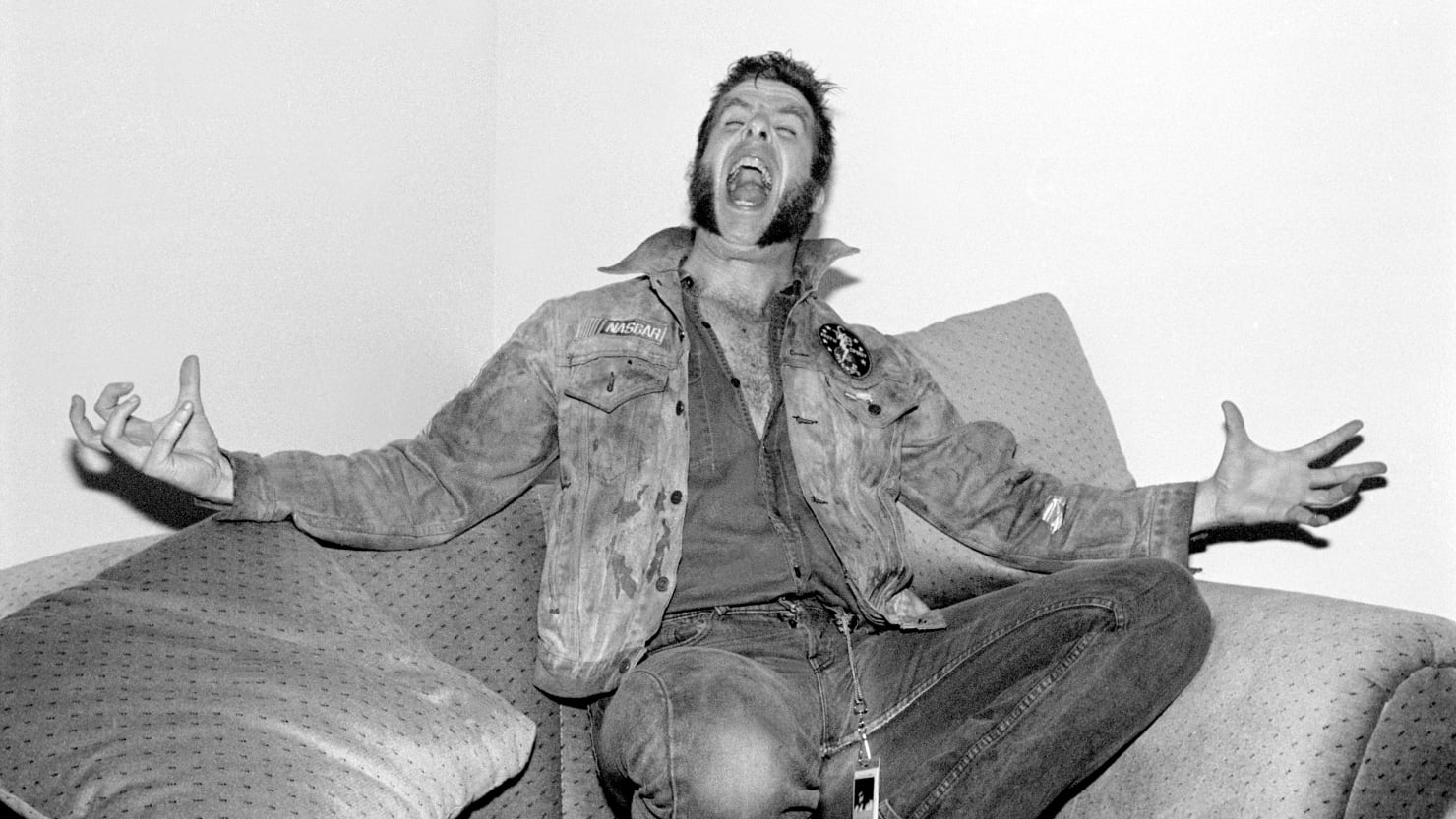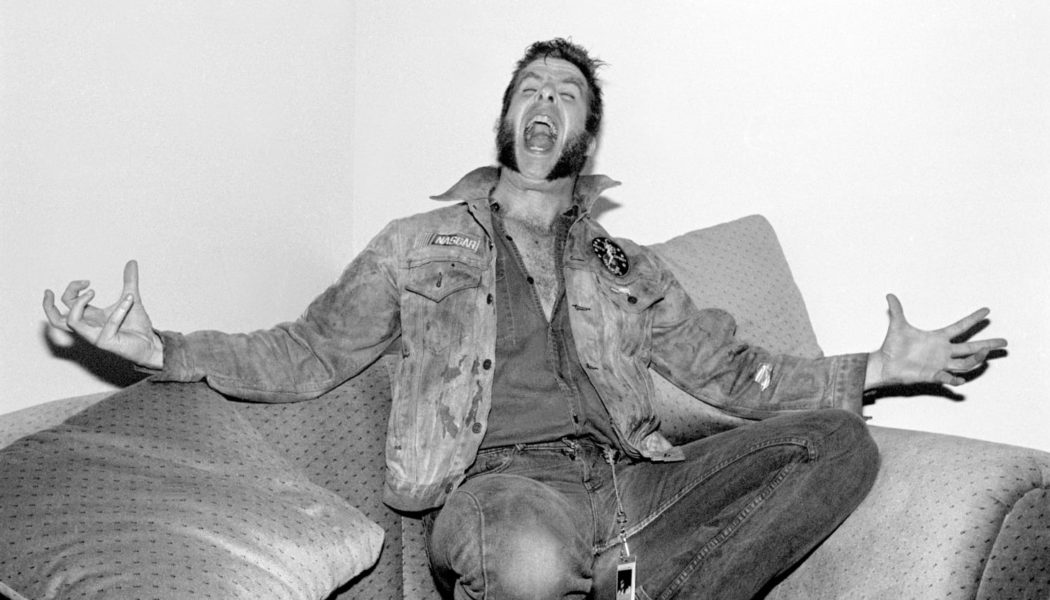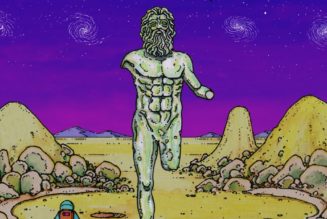
Mojo Nixon, the singer, songwriter, and screwball radio personality known for novelty cult hits like “Elvis Is Everywhere” and “Don Henley Must Die,” died on Wednesday aboard a country music cruise. He was 66.
Nixon had been co-hosting the Outlaw Country Cruise, an annual voyage run by the eponymous Sirius XM radio channel where the motor-mouthed musician had made his home for the past two decades, according to a Rolling Stone profile last year. His cause of death was an unspecified cardiac event, according to a Facebook statement.
“How you live is how you should die,” the statement, posted to a page for Nixon’s official documentary. “Mojo Nixon was full-tilt, wide-open, rock hard, root hog, corner on two wheels + on fire… Passing after a blazing show, a raging night, closing the bar, taking no prisoners + a good breakfast with bandmates and friends.”
“A cardiac event on the Outlaw Country Cruise is about right,” the post continued. “& that’s just how he did it. Mojo has left the building.”
Born Neill Kirby McMillan Jr. in 1957 in Chapel Hill, North Carolina, Nixon began making music as one half of a double act with fellow “madman of rock” Skid Roper in the early 1980s. Their manic honky-tonk flair and anti-establishment punk sensibilities combined into a left-field, left-wing musical style Nixon likened to “three drunks hollering in a field” in an interview with the Los Angeles Times in 1987.
With Nixon on the empty water jug and Roper on the washboard, the pair would cut six records together over the next decade, charting with “Elvis Is Everywhere,” a 1987 single that cheekily declared that “Elvis is in your mom!” Other notable songs from the era included “I’m Living With the Three Foot Anti-Christ,” “Stuffin’ Martha’s Muffin,” and “Burn Down the Malls.”
The shoestring-budget music video for “Elvis Is Everywhere” enjoyed popularity on MTV. Nixon and his mutton chops would soon become a reliable fixture of the network—that is, until he left over an inscrutable decision by the suits not to air the video for “Debbie Gibson Is Pregnant with My Two-Headed Love Child.”
In 1989, Nixon split from Roper and struck out on his own, releasing his debut solo album, Otis, in 1990. Otis included “Don Henley Must Die” (on which Nixon threatened: “The same goes for you, Sting!”), a track that proved popular with both fans and the irascible Eagles drummer himself, who appeared in the audience at one of Nixon’s Texas shows in 1992.
“There I was, the king of bullshit, completely flabbergasted,” Nixon once remembered of spotting Henley. “I took my guitar off, put it back on, did that like three times, then got on the mic and said, ‘Don, do you want to debate? Do you want to fist fight?’ He was shit-faced and he goes, ‘I want to sing that song, especially the part about not getting together with Glenn Frey!’”
Henley climbed onto the stage and, legend goes, the pair launched into a rowdy rendition of the song, with Henley taking lead on the chorus. “He was beltin’ that shit out, screaming like he was Johnny fuckin’ Rotten,” Nixon said fondly.
Along the way, he continued to collaborate with other artists, including the Dead Kennedys’ Jello Biafra, with whom he made the 1994 album Prairie Home Invasion.
“Beneath all the Redneck Wildman veneer, the Mojo I knew was a real gentleman,” Biafra wrote in a tribute on Thursday. “Deep, loving and empathetic as it gets, a true son of Woody Guthrie.”
Nixon also dabbled in Hollywood during the ‘90s, portraying drummer James Van Eaton in the 1989 Jerry Lee Lewis biopic Great Balls of Fire and—perhaps in a nod to his backing band, the Toadliquors—Toad in 1993’s Super Mario Bros.
He moved into radio after the turn of the century, seemingly ready to settle into a role as an irreverent elder statesman of punk. But he “un-retired” in 2009, releasing an album of previously “lost” tracks he claimed to have found in “an old shoe box full of cassette tapes” under his front porch.
In the delightful press release that accompanied his un-retirement, Nixon said, “Can’t wait for Washington to fix the economy. We must take bold action now. If I make the new album free and my entire catalog free it will stimulate the economy. It might even over-stimulate the economy.”
“History has shown that when people listen to my music, money tends to flow to bartenders, race tracks, late night greasy spoons, bail bondsman, go kart tracks, tractor pulls, football games, peep shows and several black market vices,” he added. “My music causes itches that it usually takes some money to scratch.”
A documentary about his life, The Mojo Manifesto: The Life and Times of Mojo Nixon, premiered at SXSW in 2022.
“Whatever line there is, we have crossed it,” Nixon says in the film, “and taken a shit on it.”









